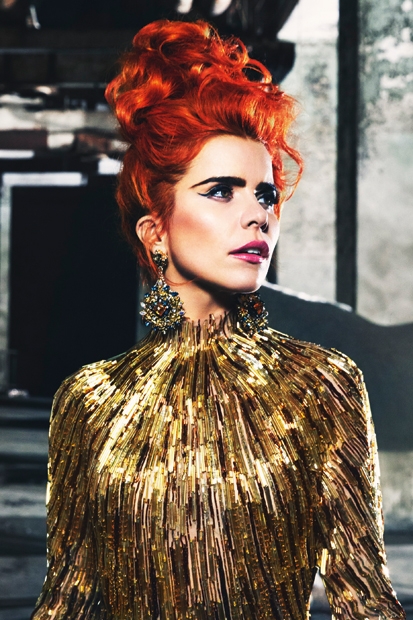Paloma Faith is an unusual pop star. Her flamboyant, retro appearance is upholstered by a deep-thinking mind and she articulates herself in an uncut East London accent. She hangs out with the author Hanif Kureishi and you can expect to find her at an art opening. When we meet in London’s Soho House, she is a cocktail of reds and oranges. Her hair, held back by a neon scrunchie, is white gold after the ‘gingerness’ washed out in the sea and she’s wearing a red-and-white checked gingham skirt with Chelsea boots.
Although she admits that by keeping slim she makes a concession to conformity, she otherwise seems to do things her own way. She told the head of the record label who eventually signed her to stop texting during her showcase — unthinkable for an aspirant artist in the cold world of the music industry. ‘I said if he had anything to do with my career I’d rather sing in pubs for the rest of my life and walked out. Nine months on he wrote me a letter of apology and said he wanted to sign me.’
Faith had been pulling pints while studying for a Masters in directing and designing for the theatre at art college. She was scouted by the record label after the pub manager asked her to front his band. Today, she’s promoting her third album. The first two went double platinum and the second, Fall to Grace, reached number two in the UK charts.
The new album is called A Perfect Contradiction. The title comes from a conversation with the megastar producer Pharrell Williams. ‘I said, “I’m interested in perfect contradictions, somebody who thinks one thing but they are another, because I consider myself to be that.”’ There is, she says, a joyfulness, euphoria and hopefulness to the record.







Comments
Join the debate for just £1 a month
Be part of the conversation with other Spectator readers by getting your first three months for £3.
UNLOCK ACCESS Just £1 a monthAlready a subscriber? Log in